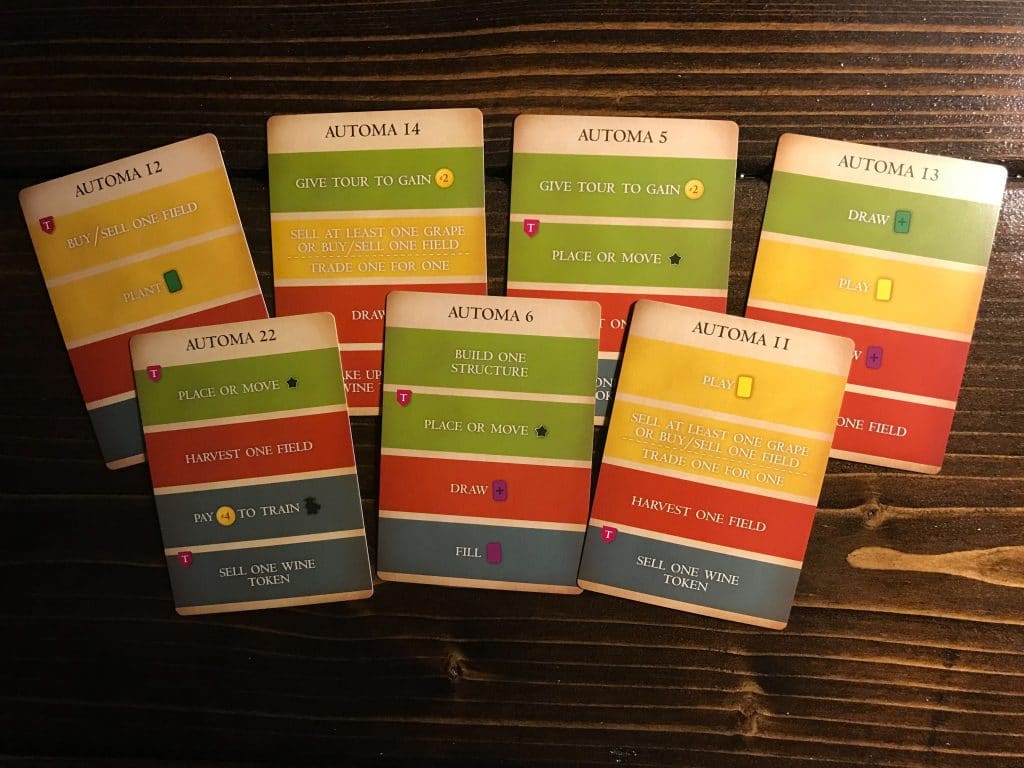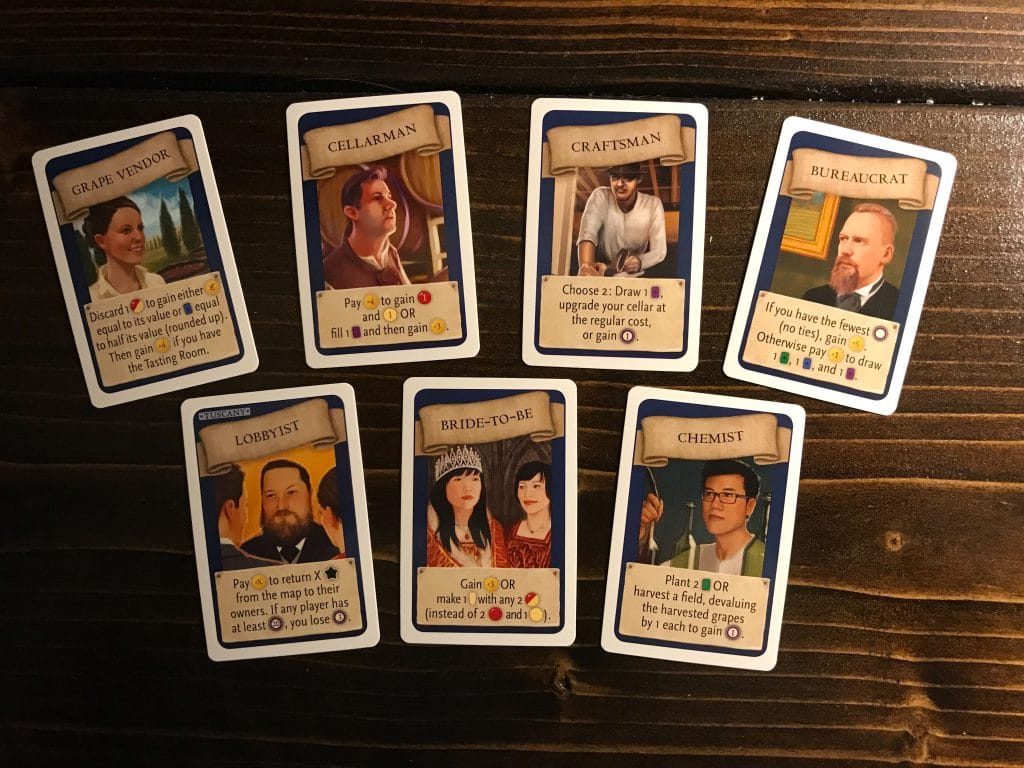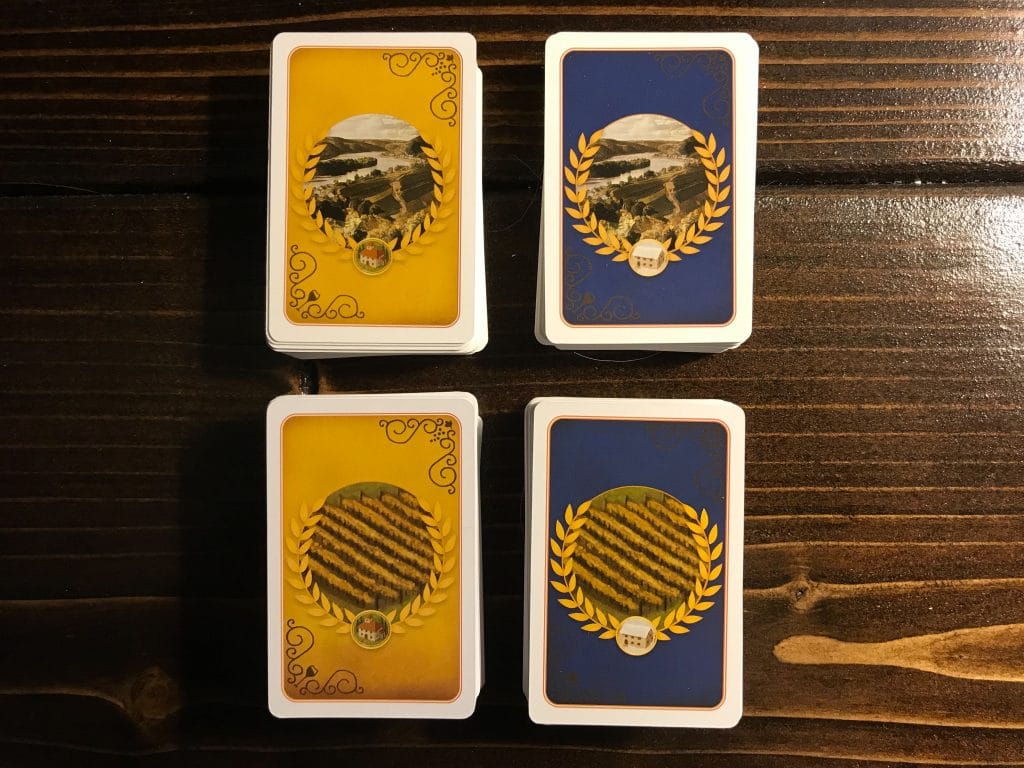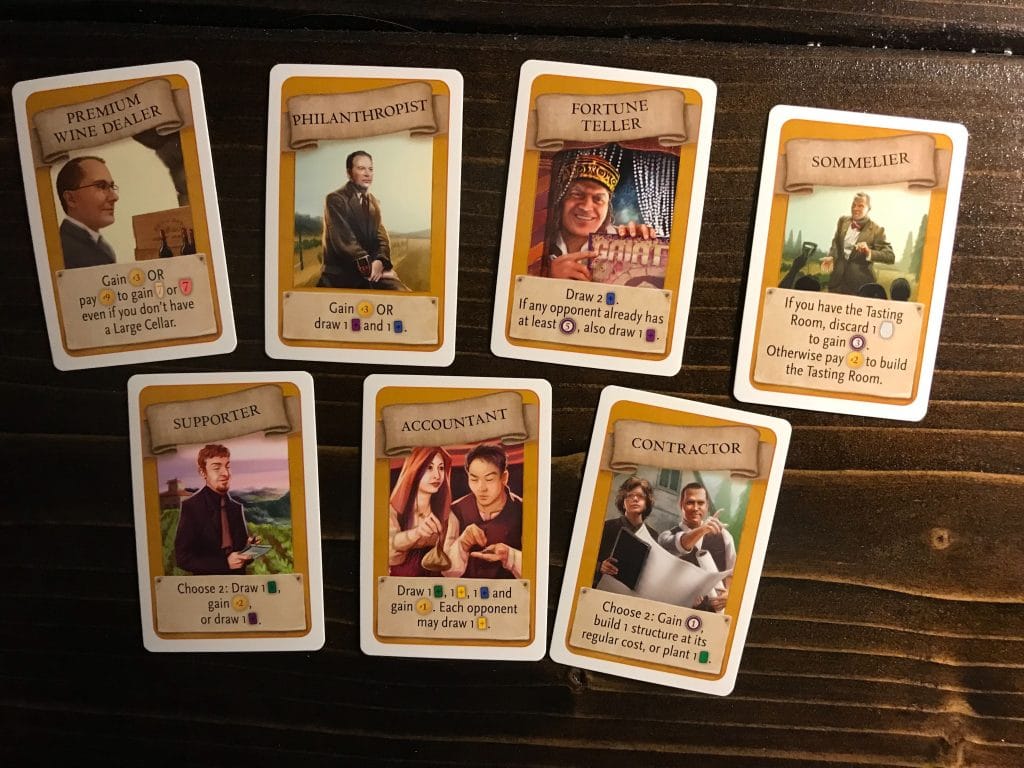Here at Nerds on Earth we already have an article on Viticulture. I’m not here to rave about this instant-classic board game by Stonemaier Games and describe every mechanic in great detail. Okay, okay you got me.
I’ll rave a little bit.
Viticulture is definitely in my top three favorite games right now, alongside Scythe and Terraforming Mars. These games have one distinct element that sets them apart from the rest of my collection–not only do they play amazingly well with a group of friends, but they are also a blast to play solo.
Sometimes we just can’t get a group together to play games when we get the itch to move meeples around or plant greeneries on the fourth rock from the Sun. It’s a real shame!
But lucky for you (and me), plenty of game designers are working in single-player mechanics directly into their games so that you can still experience the joy of racing to the Factory or establishing a profitable vineyard. Enter Viticulture.
 Viticulture Solo: Quite the Challenge
Viticulture Solo: Quite the Challenge
Solitaire game modes are usually a completely different animal than playing with a bunch of humans. I vividly recall my first playthrough of Terraforming Mars solo where I didn’t even come close to finishing all of the goals. Similarly, my inaugural game against the Automa in Scythe didn’t go so great either.
Some of this is because the solo game is meant to present a challenge; if you could easily win every single time, it would lose some of its luster.

Additionally, solo play is more scripted in the sense that the AI player or victory conditions are typically designed to accelerate more quickly than the human player. Whether it be getting a headstart or bending rules, the player is usually playing catch-up from the beginning.
Viticulture follows this script to the letter. It took several plays before I was able to achieve a victory, and I was beaming as I ran to tell my wife the great news. That’s another thing that challenge provides: an overwhelming feeling of accomplishment and satisfaction when you finally seize victory.
 Viticulture Solo: Many Vines Branch to Victory
Viticulture Solo: Many Vines Branch to Victory
Alright, so the premise of the solo version of Viticulture is the same as the regular version – build a vineyard, produce wine, and gain enough profit to beat the AI’s predetermined level of Victory Points.
In a regular game, players tend to have a little bit of time to build an engine using a wide variety of strategies. Solo, however, you’re only going to have seven turns to turn your fallow ground into a money-making machine.
One of the best parts of losing a solo game over and over again, like I did with Viticulture, was that you begin to see what strategies develop quickly enough for you to go home with a victory. After you find something that works with relative consistency, you can mix it up and impose restrictions on yourself for an additional layer of complexity.
For example, you might decide that you’re going to ignore building the largest cellar and focus only on filling multitudes of smaller, more manageable orders. Or maybe you’re going to work with a single field, giving yourself an immediate influx of cash to propel your vineyard forwards.
That’s something that Viticulture does really well – there are so many avenues to winning that you can experience the game in a completely fresh way each time that you bring it down from the shelf. At the same time, it’s challenging enough where you really need to analyze and optimize your turns to maximize your return.
Being able to cash in a glass bead once a turn to take a bonus action is an elegant way to assist players in jump-starting their strategies. Additionally, you’ll be on pins and needles every time you flip over the Automa card to see what actions the AI takes. Recite this aloud for practice: “Please don’t build a structure, pleasure don’t build a structure.”
 Viticulture Solo: Expand Your Horizons
Viticulture Solo: Expand Your Horizons
If you’re looking to keep things interesting, I highly recommend checking out the two Visitor card expansions available for Viticulture: Moor Visitors and Visit from the Rhine Valley. Both expansions offer additional Visitor cards that enhance the game and add variability.
Moor Visitors can be added to any version of Viticulture for seamless integration with the original game. You’ll pack in an additional set of forty cards that will introduce classic passerby like the Grape Thief and the Cheesemonger. I mean, you can’t drink wine without cheese; that would be a minor misdemeanor in Wisconsin.
![]()
Card back differences between base game and Rhine Valley Visitors. 
Winter Visitors – Rhine Valley ![]()
Summer Visitors – Rhine Valley
With the Visit from the Rhine Valley expansion, you shift the Visitors’ focus from Victory Points and instead emphasize the wine business. When playing with these cards, you shouldn’t mix them in with the base set or with the cards from Moor Visitors. Since they highlight different mechanics, slapping both decks together will take away the cohesion that the Visitors share with the theme.
This is the expansion that I really want to talk about in regards to the solo game. Simply swapping out the Visitors with those from Rhine Valley basically creates an entirely new game in itself. You’ll find that strategies centered around gaining and playing Visitor cards are going to be uprooted; the ways they interact with your vineyard are exciting and they offer a different perspective to the wine-making game.
Personally, using Visitors are my go-to strategy. The cards do wild and varied things, sometimes in incredibly synergistic ways. Don’t even get me started on playing two Visitors back-to-back…that’s just unfair.
And of course there’s the Tuscany expansion. Feel free to dive into this one once you get a feel for the base game, as it adds a new dynamic with structures and special workers. As far as the solo game goes, I would prioritize the Visitor expansions ahead of Tuscany since having more Visitor cards in the mix lets you see a greater variety of cards in consecutive plays.
 Viticulture Solo: It’s Not Good, It’s ‘Grape’
Viticulture Solo: It’s Not Good, It’s ‘Grape’
I’ve been to the Napa Valley and enjoyed wine straight from the source. Not only was it delicious, but it was also really interesting to see the wine process and how much it differed from vineyard to vineyard. Neighboring fields could vary wildly in their methods and tastes due to slight variations in weather, soil content, etc. In the same way, Viticulture showcases players taking unique paths to victory.
Whether you have a dedicated group of gamers or spend more time playing solo, Viticulture is an excellent addition to your collection. And you don’t even have to know how to pronounce “cabernet sauvignon” to have a grape time.
I’ll see myself out.
You can get Viticulture here or ask for it at your FLGS.



